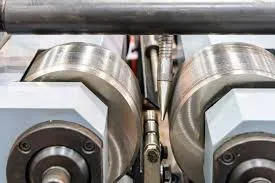
-
 Afrikaans
Afrikaans -
 Albanian
Albanian -
 Amharic
Amharic -
 Arabic
Arabic -
 Armenian
Armenian -
 Azerbaijani
Azerbaijani -
 Basque
Basque -
 Belarusian
Belarusian -
 Bengali
Bengali -
 Bosnian
Bosnian -
 Bulgarian
Bulgarian -
 Catalan
Catalan -
 Cebuano
Cebuano -
 Corsican
Corsican -
 Croatian
Croatian -
 Czech
Czech -
 Danish
Danish -
 Dutch
Dutch -
 English
English -
 Esperanto
Esperanto -
 Estonian
Estonian -
 Finnish
Finnish -
 French
French -
 Frisian
Frisian -
 Galician
Galician -
 Georgian
Georgian -
 German
German -
 Greek
Greek -
 Gujarati
Gujarati -
 Haitian Creole
Haitian Creole -
 hausa
hausa -
 hawaiian
hawaiian -
 Hebrew
Hebrew -
 Hindi
Hindi -
 Miao
Miao -
 Hungarian
Hungarian -
 Icelandic
Icelandic -
 igbo
igbo -
 Indonesian
Indonesian -
 irish
irish -
 Italian
Italian -
 Japanese
Japanese -
 Javanese
Javanese -
 Kannada
Kannada -
 kazakh
kazakh -
 Khmer
Khmer -
 Rwandese
Rwandese -
 Korean
Korean -
 Kurdish
Kurdish -
 Kyrgyz
Kyrgyz -
 Lao
Lao -
 Latin
Latin -
 Latvian
Latvian -
 Lithuanian
Lithuanian -
 Luxembourgish
Luxembourgish -
 Macedonian
Macedonian -
 Malgashi
Malgashi -
 Malay
Malay -
 Malayalam
Malayalam -
 Maltese
Maltese -
 Maori
Maori -
 Marathi
Marathi -
 Mongolian
Mongolian -
 Myanmar
Myanmar -
 Nepali
Nepali -
 Norwegian
Norwegian -
 Norwegian
Norwegian -
 Occitan
Occitan -
 Pashto
Pashto -
 Persian
Persian -
 Polish
Polish -
 Portuguese
Portuguese -
 Punjabi
Punjabi -
 Romanian
Romanian -
 Russian
Russian -
 Samoan
Samoan -
 Scottish Gaelic
Scottish Gaelic -
 Serbian
Serbian -
 Sesotho
Sesotho -
 Shona
Shona -
 Sindhi
Sindhi -
 Sinhala
Sinhala -
 Slovak
Slovak -
 Slovenian
Slovenian -
 Somali
Somali -
 Spanish
Spanish -
 Sundanese
Sundanese -
 Swahili
Swahili -
 Swedish
Swedish -
 Tagalog
Tagalog -
 Tajik
Tajik -
 Tamil
Tamil -
 Tatar
Tatar -
 Telugu
Telugu -
 Thai
Thai -
 Turkish
Turkish -
 Turkmen
Turkmen -
 Ukrainian
Ukrainian -
 Urdu
Urdu -
 Uighur
Uighur -
 Uzbek
Uzbek -
 Vietnamese
Vietnamese -
 Welsh
Welsh -
 Bantu
Bantu -
 Yiddish
Yiddish -
 Yoruba
Yoruba -
 Zulu
Zulu
Exploring the Importance of CE Certification for Reed Thread Roller Machines in Industrial Applications
CE Certification for Reed Thread Rollers Ensuring Quality and Compliance
In today’s global marketplace, adhering to international standards is crucial for any manufacturing company that seeks to establish itself in the competitive arena. One essential certification in the European market is the CE (Conformité Européenne) marking. This certification indicates compliance with health, safety, and environmental protection standards set by the European Union. For manufacturers of thread rolling machines, such as reed thread rollers, obtaining CE certification is not just a regulatory requirement; it also serves as a testament to quality and reliability.
The Importance of CE Certification
CE certification plays a vital role in enhancing a product's appeal to consumers and businesses alike. By successfully achieving CE marking, manufacturers demonstrate that their reed thread rollers meet the necessary EU directives, thereby ensuring safety and performance standards. This certification helps businesses gain access to the European market, as products lacking CE marking may be subjected to costly delays, additional inspections, or even prohibition from entering certain markets.
For manufacturers of reed thread rollers, CE certification encompasses a comprehensive evaluation process. This includes an assessment of the design, production processes, and testing protocols of the machines. The aim is to ensure that the machinery operates efficiently and safely throughout its lifecycle, minimizing risks to operators and the surrounding environment.
The Process of Obtaining CE Certification
Obtaining CE certification for reed thread rollers involves several critical steps
1. Understanding Relevant Directives Manufacturers must start by identifying the applicable EU directives for their products. For thread rollers, the Machinery Directive is often relevant, alongside additional directives related to electrical safety or emissions, depending on the machine's specific features.
2. Risk Assessment A thorough risk assessment must be conducted to identify potential hazards associated with the use and operation of the thread rolling machine. This assessment is crucial for ensuring that all safety measures are accounted for and implemented.
ce certification reed thread roller

3. Testing and Compliance After the risk assessment, manufacturers must ensure that their thread rollers meet the established safety and performance benchmarks. This may require extensive testing and quality control measures to evaluate the machine's reliability and efficiency.
4. Documentation The next step involves compiling technical documentation that demonstrates compliance with the relevant directives. This documentation must detail the design, components, and operation of the machine, as well as the results of safety tests.
5. Declaration of Conformity Once all tests are passed and documentation is prepared, manufacturers must create a Declaration of Conformity, which serves as a formal statement of compliance with EU regulations. This declaration must be available for inspection and should accompany the product when placed on the market.
Benefits of CE Certification
For companies manufacturing reed thread rollers, the benefits of CE certification extend beyond regulatory compliance. Achieving this certification can enhance the company’s reputation, increase customer confidence, and open up new business opportunities. Customers are more likely to trust and invest in machinery that meets stringent safety and quality standards, knowing that such products have undergone rigorous testing.
Additionally, CE marking can give manufacturers a competitive edge. With an increasing number of customers prioritizing safety and sustainability, having a CE certification can differentiate one’s products from competitors who may not have achieved the same level of compliance.
Conclusion
In conclusion, CE certification for reed thread rollers is not just a regulatory obligation but a valuable asset that fosters trust and credibility in the market. By adhering to EU standards, manufacturers can ensure the safety and reliability of their products, ultimately paving the way for business growth and customer satisfaction.
